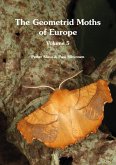Initiatives reinventing taxonomy for the Internet generation are leading to a dramatic resurgence in this once declining discipline. Looking at the efforts of several groups to catalog the world's biodiversity and make it accessible, this work discusses the future of descriptive taxonomy. It covers such technology as DNA evidence and its applications, computer-assisted species identification, digital morphology, and E-typification. It also provides insight into effective ways of organizing taxonomic information, and discusses what benefits can be leveraged from a rapid growth of taxonomic knowledge.
An in-depth discussion of the future of descriptive taxonomy, this book examines the efforts of several international groups to catalog the world's biodiversity and meet the unprecedented challenges of the biodiversity crisis. Reclaiming the unique mission, goals, and importance of taxonomy as an independent science, the book covers technologies such as DNA evidence and its applications, computer-assisted species identification, digital morphology, and E-typification. It provides insight into effective ways of organizing taxonomic information and discusses what benefits can be leveraged from a rapid growth of taxonomic knowledge.
An in-depth discussion of the future of descriptive taxonomy, this book examines the efforts of several international groups to catalog the world's biodiversity and meet the unprecedented challenges of the biodiversity crisis. Reclaiming the unique mission, goals, and importance of taxonomy as an independent science, the book covers technologies such as DNA evidence and its applications, computer-assisted species identification, digital morphology, and E-typification. It provides insight into effective ways of organizing taxonomic information and discusses what benefits can be leveraged from a rapid growth of taxonomic knowledge.








